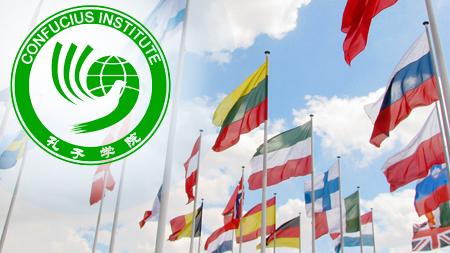WKU cuts ties with Confucius Institute, ending 9-year relationship
Western Kentucky University announced Monday it would be cutting ties with its Confucius Institute. It marked the end of a nine-year relationship with the Chinese language and cultural education program that brought instruction to 47 public schools in 20 Kentucky school districts using teachers recruited from China.
WKU President Timothy Caboni announced the move in a brief email to faculty and staff, explaining a conflict with the university’s Chinese Flagship program.
That program, which receives federal funding, allows WKU students to study Chinese throughout their time at the university while also pursuing their undergraduate degree.
“Defense spending legislation passed in 2018 prohibits institutions from hosting Confucius Institutes if they receive U.S. Department of Defense funding for Chinese language programs,” Caboni wrote.
“Although many efforts have been made, WKU has been denied a waiver from the (Department of Defense) that would allow WKU to operate both the CI and the Chinese Flagship Program.”
As a result, Caboni said the university had informed its partners of plans to terminate the agreement with Confucius Institute headquarters in Beijing. Activities at the center will be phased out in the coming weeks.
WKU spokesman Bob Skipper declined to be interviewed after the news was announced to the public in a brief news release Monday afternoon.
“We’re letting the release stand for itself and not doing interviews,” Skipper wrote in a text message. Asked what will become of the school-based language programs offered through the center, Skipper said the university wants to keep offering them but didn’t offer additional details.
A Confucius Institute has operated at WKU since 2010.
According to the news release, at least four other universities with Chinese Flagship Programs have closed their Confucius Institutes: Indiana University, University of Minnesota, University of Oregon and University of Rhode Island.
Confucius Institutes have come under scrutiny both nationally and at the local level. Opponents, including some U.S. senators, have criticized the institutes as a spying risk and a threat to academic freedom on college campuses.
In May of 2017, WKU celebrated the dedication of its Model Confucius Institute off Normal Drive on campus in connection with a deal that represented a 50-year relationship with China. The deal signed by then-President Gary Ransdell drew criticism, including from some university faculty, about a contract provision that would make the dedicated site “subject to the free and exclusive use of the Model Confucius Institute for 50 years, and that during this period, the University shall not change the functions of the Dedicated Site.”
As part of the deal, according to a Daily News article published in 2017, as much as $2 million was provided for the building’s construction by Hanban, which is the headquarters of the Confucius Institute.
At the time, Ransdell told the Daily News that Hanban would kick in continual support for the institute’s functions in exchange for dedicated space on the campus. WKU’s Confucius Institute conducts many outreach activities, primarily by providing Chinese language teachers to give instruction in Kentucky’s K-12 schools.
“Hanban is providing, in any given year, between $3 and $5 million a year to operate our Confucius Institute, including about $3 million a year in the Chinese teachers,” Ransdell said in 2017.
Per the deal signed by Ransdell, WKU would have to return a prorated amount of money if the university wants to repurpose the building over its 50-year obligation. It wasn’t immediately clear Monday what costs WKU might face as a result of ending its relationship with its Confucius Institute.
* * *
Date: 04-23-2019
By Aaron Mudd
Bowling Green Daily News
Kentucky Press News Service



























